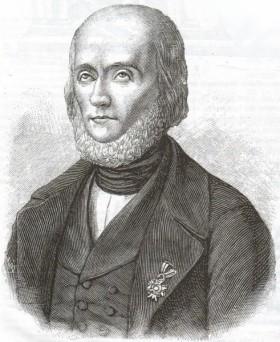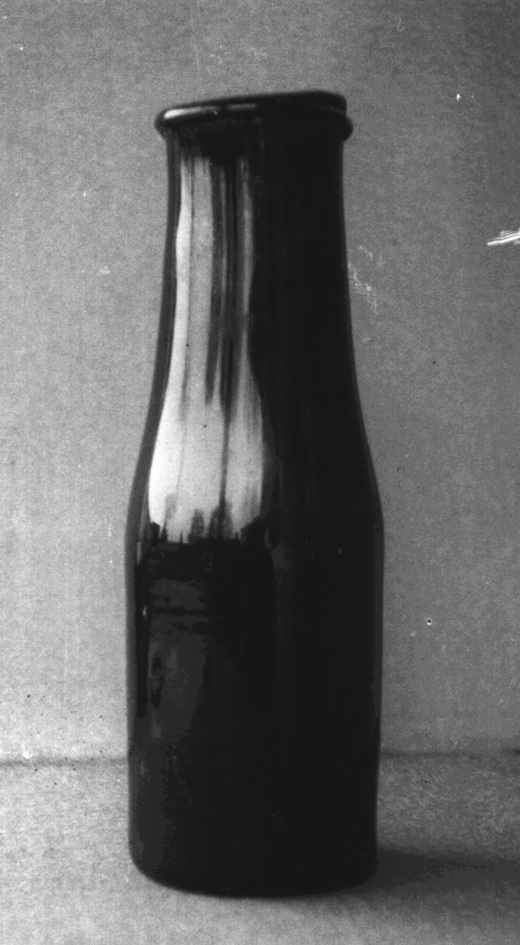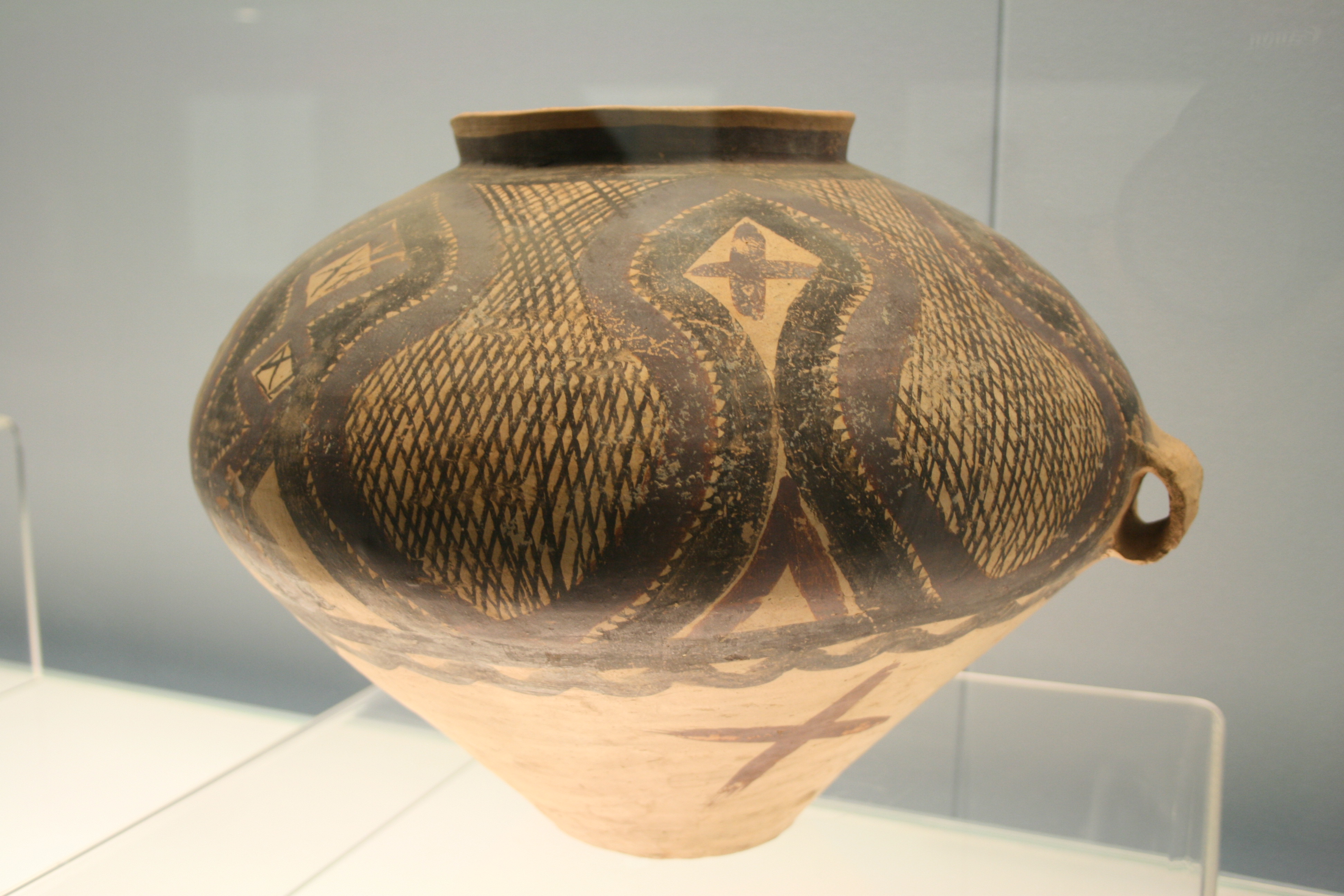|
Peter Durand
Peter Durand (21 October 1766 – 23 July 1822) was an English merchant who is widely credited with receiving the first patent for the idea of preserving food using tin cans. The patent (No 3372) was granted on August 25, 1810, by King George III of the United Kingdom. The patent specifies that it was issued to Peter Durand, a merchant of Hoxton Square, Middlesex, United Kingdom, for a method of preserving food (from vegetable or animal sources) and other perishable articles using various vessels made of glass, pottery, tin or other suitable metals. The preservation procedure was to fill up a vessel with food and cap it. Vegetables were to be put in raw, whereas animal substances might either be raw or half-cooked. Then the whole item was to be heated by any means, such as an oven, stove or a steam bath, but most conveniently by immersing in water and boiling it. The boiling time was not specified, and was said to depend on the food and vessel size. Neither was the patent clear o ... [...More Info...] [...Related Items...] OR: [Wikipedia] [Google] [Baidu] |
Patent
A patent is a type of intellectual property that gives its owner the legal right to exclude others from making, using, or selling an invention for a limited period of time in exchange for publishing an sufficiency of disclosure, enabling disclosure of the invention."A patent is not the grant of a right to make or use or sell. It does not, directly or indirectly, imply any such right. It grants only the right to exclude others. The supposition that a right to make is created by the patent grant is obviously inconsistent with the established distinctions between generic and specific patents, and with the well-known fact that a very considerable portion of the patents granted are in a field covered by a former relatively generic or basic patent, are tributary to such earlier patent, and cannot be practiced unless by license thereunder." – ''Herman v. Youngstown Car Mfg. Co.'', 191 F. 579, 584–85, 112 CCA 185 (6th Cir. 1911) In most countries, patent rights fall under private la ... [...More Info...] [...Related Items...] OR: [Wikipedia] [Google] [Baidu] |
Philippe De Girard
Philippe Henri de Girard (February 1, 1775 – August 26, 1845) was a French engineer and inventor of the first flax spinning frame in 1810, and the person after whom the town of Żyrardów in Poland was named. He was also the uncredited inventor of food preservation using tin cans. Biography Girard was born in the village of Lourmarin in the ''département in France, département'' of Vaucluse, France, to a wealthy aristocratic family. As a child, he was sent by his parents to some of the most notable French schools of the era. However, in the effect of the French Revolution, his family was forced to flee France and young Philippe had to abandon his studies in order to help his family earn money for living. In May 1810 Napoleon I tried to stop English cotton fabrics from entering the continent of Europe and offered a reward of one million francs to any inventor who could devise the best machinery for the spinning of flax yarn. After only a short period Philippe de Girard took o ... [...More Info...] [...Related Items...] OR: [Wikipedia] [Google] [Baidu] |
British Inventors
British may refer to: Peoples, culture, and language * British people, nationals or natives of the United Kingdom, British Overseas Territories and Crown Dependencies. * British national identity, the characteristics of British people and culture * British English, the English language as spoken and written in United Kingdom of Great Britain and Northern Ireland and, more broadly, throughout the British Isles * Celtic Britons, an ancient ethno-linguistic group * Brittonic languages, a branch of the Insular Celtic language family (formerly called British) ** Common Brittonic, an ancient language Other uses *People or things associated with: ** Great Britain, an island ** British Isles, an island group ** United Kingdom, a sovereign state ** British Empire, a historical global colonial empire ** Kingdom of Great Britain (1707–1800) ** United Kingdom of Great Britain and Ireland (1801–1922) * British Raj, colonial India under the British Empire * British Hong Kong, colonial ... [...More Info...] [...Related Items...] OR: [Wikipedia] [Google] [Baidu] |
Canning
Canning is a method of food preservation in which food is processed and sealed in an airtight container (jars like Mason jars, and steel and tin cans). Canning provides a shelf life that typically ranges from one to five years, although under specific circumstances, it can be much longer. A freeze-dried canned product, such as canned dried lentils, could last as long as 30 years in an edible state. In 1974, samples of canned food from the wreck of the ''Bertrand (steamboat), Bertrand'', a steamboat that sank in the Missouri River in 1865, were tested by the National Food Processors Association. Although appearance, smell, and vitamin content had deteriorated, there was no trace of microbial growth and the 109-year-old food was determined to be still safe to eat. History and development French origins Shortly before the Napoleonic Wars, the French government offered a hefty cash award of 12,000 francs to any inventor who could devise a cheap and effective method of preser ... [...More Info...] [...Related Items...] OR: [Wikipedia] [Google] [Baidu] |
Bryan Donkin
Bryan Donkin FRS FRAS (22 March 1768 – 27 February 1855) developed the first paper making machine and created the world's first commercial canning factory. These were the basis for large industries that continue to flourish today. Bryan Donkin was involved with Thomas Telford's Caledonian Canal, Marc and Isambard Brunel's Thames Tunnel, and Charles Babbage's computer. He was an advisor to the government and held in high esteem by his peers. Early life Raised in Sandhoe, Northumberland, his father was a surveyor and land agent. Donkin initially began work in the same business, and worked from September 1789 to February 1791 as bailiff at Knole House and estate for the John Sackville, 3rd Duke of Dorset, Duke of Dorset. Career While working for the Duke of Dorset, Donkin consulted the engineer John Smeaton, an acquaintance of his father, as to how he could become an engineer. At Smeaton's advice in 1792 he apprenticed himself to John Hall (engineer), John Hall in Dart ... [...More Info...] [...Related Items...] OR: [Wikipedia] [Google] [Baidu] |
Nicolas Appert
Nicolas Appert (17 November 1749 – 1 June 1841) was a French confectioner and inventor who, in the early 19th century, invented airtight food preservation. Appert, known as the " father of food science", described his invention as a way "of conserving all kinds of food substances in containers". Early life Appert was born in Châlons-en-Champagne, the ninth of eleven children. His family ran an inn in the town and he worked in the family business until the age of twenty, when he opened a brewery with one of his brothers. He then served as head chef to Christian IV, Count Palatine of Zweibrücken for thirteen years. Appert was a confectioner and chef in Paris from 1784 to 1795. During this period, he married Elisabeth Benoist and the couple had four children. Appert was active during the French Revolution and took part in the execution of King Louis XVI. However, he fell under suspicion during the subsequent Reign of Terror and was arrested in April 1794, but he was able to ... [...More Info...] [...Related Items...] OR: [Wikipedia] [Google] [Baidu] |
Royal Institution
The Royal Institution of Great Britain (often the Royal Institution, Ri or RI) is an organisation for scientific education and research, based in the City of Westminster. It was founded in 1799 by the leading British scientists of the age, including Henry Cavendish and its first president, George Finch. Its foundational principles were diffusing the knowledge of, and facilitating the general introduction of useful mechanical inventions and improvements, as well as enhancing the application of science to the common purposes of life (including through teaching, courses of philosophical lectures, and experiments). Much of the Institution's initial funding and the initial proposal for its founding were given by the Society for Bettering the Conditions and Improving the Comforts of the Poor, under the guidance of philanthropist Sir Thomas Bernard and American-born British scientist Sir Benjamin Thompson, Count Rumford. Since its founding it has been based at 21 Albemarle Stree ... [...More Info...] [...Related Items...] OR: [Wikipedia] [Google] [Baidu] |
Royal Society
The Royal Society, formally The Royal Society of London for Improving Natural Knowledge, is a learned society and the United Kingdom's national academy of sciences. The society fulfils a number of roles: promoting science and its benefits, recognising excellence in science, supporting outstanding science, providing scientific advice for policy, education and public engagement and fostering international and global co-operation. Founded on 28 November 1660, it was granted a royal charter by Charles II of England, King Charles II and is the oldest continuously existing scientific academy in the world. The society is governed by its Council, which is chaired by the society's president, according to a set of statutes and standing orders. The members of Council and the president are elected from and by its Fellows, the basic members of the society, who are themselves elected by existing Fellows. , there are about 1,700 fellows, allowed to use the postnominal title FRS (Fellow ... [...More Info...] [...Related Items...] OR: [Wikipedia] [Google] [Baidu] |
Pottery
Pottery is the process and the products of forming vessels and other objects with clay and other raw materials, which are fired at high temperatures to give them a hard and durable form. The place where such wares are made by a ''potter'' is also called a ''pottery'' (plural ''potteries''). The definition of ''pottery'', used by the ASTM International, is "all fired ceramic wares that contain clay when formed, except technical, structural, and refractory products". End applications include tableware, ceramic art, decorative ware, toilet, sanitary ware, and in technology and industry such as Insulator (electricity), electrical insulators and laboratory ware. In art history and archaeology, especially of ancient and prehistoric periods, pottery often means only vessels, and sculpture, sculpted figurines of the same material are called terracottas. Pottery is one of the Timeline of historic inventions, oldest human inventions, originating before the Neolithic, Neolithic period, w ... [...More Info...] [...Related Items...] OR: [Wikipedia] [Google] [Baidu] |
Food Preservation
Food preservation includes processes that make food more resistant to microorganism growth and slow the redox, oxidation of fats. This slows down the decomposition and rancidification process. Food preservation may also include processes that inhibit visual deterioration, such as the enzymatic browning reaction in apples after they are cut during food preparation. By preserving food, food waste can be reduced, which is an important way to decrease production costs and increase the efficiency of food systems, improve food security and nutrition and contribute towards environmental sustainability. For instance, it can reduce the Environmental impact of agriculture, environmental impact of food production. Many processes designed to preserve food involve more than one food preservation method. Preserving fruit by turning it into jam, for example, involves boiling (to reduce the fruit's moisture content and to kill bacteria, etc.), sugaring (to prevent their re-growth) and sealing wi ... [...More Info...] [...Related Items...] OR: [Wikipedia] [Google] [Baidu] |
Glass
Glass is an amorphous (non-crystalline solid, non-crystalline) solid. Because it is often transparency and translucency, transparent and chemically inert, glass has found widespread practical, technological, and decorative use in window panes, tableware, and optics. Some common objects made of glass are named after the material, e.g., a Tumbler (glass), "glass" for drinking, "glasses" for vision correction, and a "magnifying glass". Glass is most often formed by rapid cooling (quenching) of the Melting, molten form. Some glasses such as volcanic glass are naturally occurring, and obsidian has been used to make arrowheads and knives since the Stone Age. Archaeological evidence suggests glassmaking dates back to at least 3600 BC in Mesopotamia, Ancient Egypt, Egypt, or Syria. The earliest known glass objects were beads, perhaps created accidentally during metalworking or the production of faience, which is a form of pottery using lead glazes. Due to its ease of formability int ... [...More Info...] [...Related Items...] OR: [Wikipedia] [Google] [Baidu] |
United Kingdom
The United Kingdom of Great Britain and Northern Ireland, commonly known as the United Kingdom (UK) or Britain, is a country in Northwestern Europe, off the coast of European mainland, the continental mainland. It comprises England, Scotland, Wales and Northern Ireland. The UK includes the island of Great Britain, the north-eastern part of the island of Ireland, and most of List of islands of the United Kingdom, the smaller islands within the British Isles, covering . Northern Ireland shares Republic of Ireland–United Kingdom border, a land border with the Republic of Ireland; otherwise, the UK is surrounded by the Atlantic Ocean, the North Sea, the English Channel, the Celtic Sea and the Irish Sea. It maintains sovereignty over the British Overseas Territories, which are located across various oceans and seas globally. The UK had an estimated population of over 68.2 million people in 2023. The capital and largest city of both England and the UK is London. The cities o ... [...More Info...] [...Related Items...] OR: [Wikipedia] [Google] [Baidu] |







